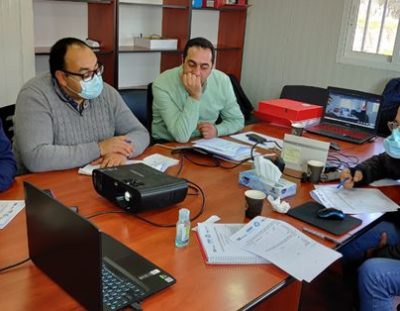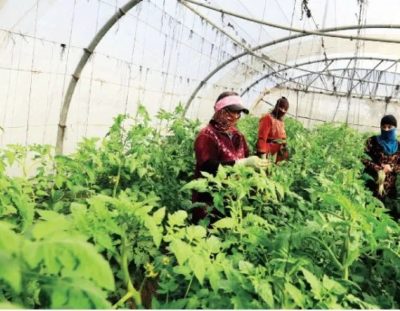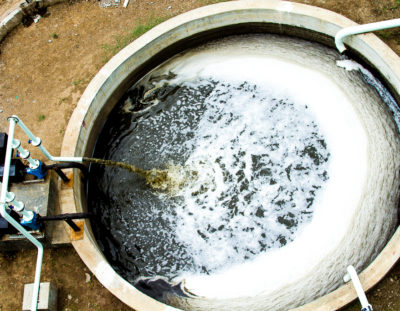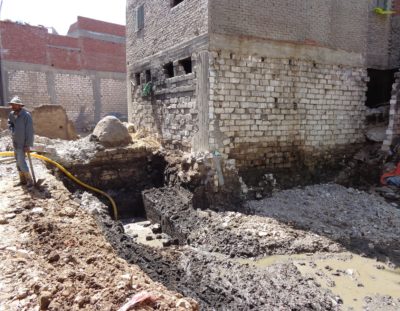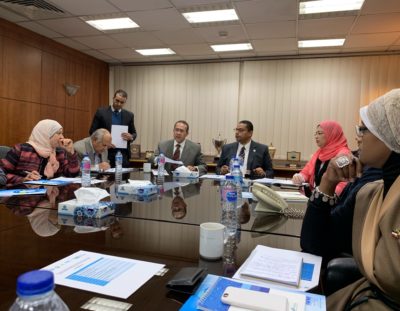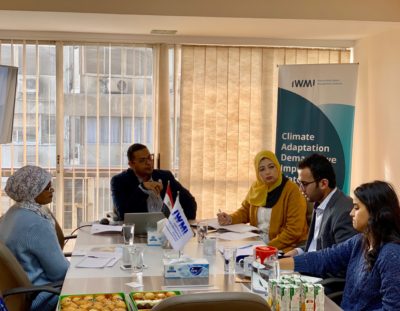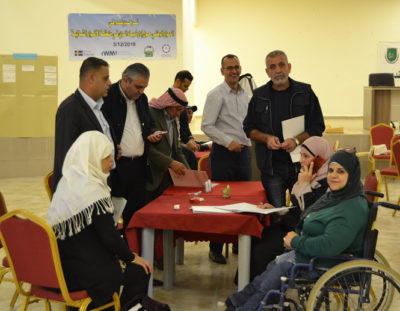Pages
March 3, 2021
February 20, 2021The ReWater MENA Project: More and Safer Water Reuse in the Middle East and North Africa, implemented by the International Water Management Institute (IWMI), in cooperation with the Arab Countries Water Utilities Association (ACWUA) are organising a training workshop, in the framework of a series of regional training workshops under the title “Safe Use of Wastewater”.
February 15, 2021On Monday 15 February 2021, a meeting was held at the premises of the Bekaa Water Establishment (Zahleh) to launch the survey that will be conducted with farmers in the framework of the Water Reuse Local Studies conducted by ReWater MENA and its partners in Lebanon.
January 27, 2021A call to develop the role of women in developing the irrigation and agricultural sectors.
June 4, 2020Antimicrobial resistance (AMR) also known as the silent pandemic, is a serious global health threat and low- and middle-income countries are likely to be the most affected in terms of economic burden and public health.
April 2, 2020
March 19, 2020Citizens’ participation in water resources management is a buzz word that has received attention from donor organisations and governments. Participatory approaches are implemented in countless development projects and programs, particularly in developing countries. But the question is, what sort of “participatory” governance do we need - as development professionals in the water sector - to achieve development goals (e.g. SDG 6)?
January 20, 2020With Egypt’s National Steering Committee’s (NSC) members working steadily and ceaselessly towards competently implementing the ReWater project, a number of 14 representatives affiliated to diverse entities, elevated collaboration for combating challenges to higher levels.
January 19, 2020IWMI’s MENA office organized and hosted a fruitful meeting in Cairo on the 10th of December 2019. The ReWater MENA project’s partners’ remarkable gathering was attended by 10 distinct representatives, comprising 3 of which were delegates of the project’s donor; the Swedish International Development Cooperation Agency (SIDA).
January 16, 2020On Tuesday the 3rd of December 2019, ReWater MENA project carried out the second National Learning Alliance in Jordan. The NLA took place at the premises of a Community Based Organization (CBO) in the Northern Jordan Valley, where a group of approximately 25 diverse stakeholders were invited to participate. The invited stakeholders were representatives presenting; farmers from the Northern Jordan Valley, German Corporation for International Cooperation (GIZ) in Jordan, Royal Scientific Society (RSS), Jordan Valley Authority, the Ministry of Agriculture, the Arab Countries Water Utilities Association (ACUWA) and the Ministry of Environment.
March 3, 2021
February 20, 2021
The ReWater MENA Project: More and Safer Water Reuse in the Middle East and North Africa, implemented by the International Water Management Institute (IWMI), in cooperation with the Arab Countries Water Utilities Association (ACWUA) are organising a training workshop, in the framework of a series of regional training workshops under the title “Safe Use of Wastewater”.
February 15, 2021
On Monday 15 February 2021, a meeting was held at the premises of the Bekaa Water Establishment (Zahleh) to launch the survey that will be conducted with farmers in the framework of the Water Reuse Local Studies conducted by ReWater MENA and its partners in Lebanon.
January 27, 2021
A call to develop the role of women in developing the irrigation and agricultural sectors.
June 4, 2020
Antimicrobial resistance (AMR) also known as the silent pandemic, is a serious global health threat and low- and middle-income countries are likely to be the most affected in terms of economic burden and public health.
April 2, 2020
March 19, 2020
Citizens’ participation in water resources management is a buzz word that has received attention from donor organisations and governments. Participatory approaches are implemented in countless development projects and programs, particularly in developing countries. But the question is, what sort of “participatory” governance do we need - as development professionals in the water sector - to achieve development goals (e.g. SDG 6)?
January 20, 2020
With Egypt’s National Steering Committee’s (NSC) members working steadily and ceaselessly towards competently implementing the ReWater project, a number of 14 representatives affiliated to diverse entities, elevated collaboration for combating challenges to higher levels.
January 19, 2020
IWMI’s MENA office organized and hosted a fruitful meeting in Cairo on the 10th of December 2019. The ReWater MENA project’s partners’ remarkable gathering was attended by 10 distinct representatives, comprising 3 of which were delegates of the project’s donor; the Swedish International Development Cooperation Agency (SIDA).
January 16, 2020
On Tuesday the 3rd of December 2019, ReWater MENA project carried out the second National Learning Alliance in Jordan. The NLA took place at the premises of a Community Based Organization (CBO) in the Northern Jordan Valley, where a group of approximately 25 diverse stakeholders were invited to participate. The invited stakeholders were representatives presenting; farmers from the Northern Jordan Valley, German Corporation for International Cooperation (GIZ) in Jordan, Royal Scientific Society (RSS), Jordan Valley Authority, the Ministry of Agriculture, the Arab Countries Water Utilities Association (ACUWA) and the Ministry of Environment.


